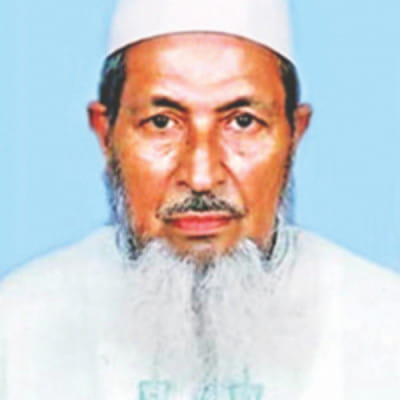Jabbar gets jail until death

Former Jatiya Party lawmaker Abdul Jabbar was sentenced to jail until death on four charges of crimes against humanity and genocide committed during the country's Liberation War in 1971.
The 82-year-old was also sentenced to 20 years' imprisonment on the other charge and fined Tk 10 lakh in his absentia. If he fails to pay the fine, he will have to serve two years more in jail, the court said.
- All the five charges were proved
- Jail until death for 4 charges
- 20 years' imprisonment for one
The International Crimes Tribunal-1 led by its Chairman Justice M Enayetur Rahim found him guilty in all the five charges levelled against him and pronounced the verdict.
Terming his offences "barbarous and shocking" Justice Rahim said, "He deserves death but his punishment has been mitigated considering his old age."
Meanwhile, the ICT-1 directed to inspector general of police to seek assistance from the Interpol in arresting fugitive Jabbar, if necessary.
VERDICT
The ICT-1 sentenced Jabbar to jail until death for the deaths of two freedom fighters -- Abdur Razzak Biswas and Motaleb Sharif, who were killed by collaborators on May 16, 1971 at Phuljhuri village at the instruction of Jabbar. They also torched over 100 houses.
Three other charges in which he was given the same punishment are:
- On May 17, he ordered his accomplices to shoot Sarda Kanta Paik to death and set 360 houses on fire at the same village
- The accused was charged with his involvement in the killing of 11 people and looting and torching 60 houses at Noli village in Pirojpur
- On October 6, Jabbar and his cohorts detained 37 people of Angulkata and Mathbaria villages. Of them, 22 were later killed and others injured, read the indictment order
The tribunal jailed him for 20 years and fined him Tk 10 lakh for forcefully converting 200 Hindus of Tushkhali in the last week of May in 1971.
PROSECUTION REACTION
After the verdict announcement, Prosecutor Jahid Imam said they expected death penalty for Jabbar as all the five charges against him were proved successfully.
"But we obey the judgement," he added.
"We will decide about the appeal after receiving the full text of the verdict," Jahid said.
DEFENCE COUNSEL
State-appointed defence counsel Abul Hasan said, "I failed to prove Jabbar innocent as I didn't have proper document in connection with the case.
The counsel said he tried to communicate with Jabbar during the trial proceedings when he came to know from the government's documents that he was staying in America. "But I failed to communicate," he added.
BACKGROUND
Born on November 30, 1932 at Khetachira village of Pirojpur, Jabbar obtained BSc engineering degree and joined the politics of Muslim League. Later, he became an influential leader of the party.
He was elected an MPA in 1964.
He formed a Peace Committee in Mathbaria and became its chairman to collaborate with the Pakistani occupation army after the Liberation War had started, said the prosecution.
Under his patronisation, Razakar force was formed in Mathbaria and as per his directive, plans and conspiracy, the Pakistani army, Razakar force and members of the Peace Committee committed various crimes against humanity in the locality.
Accused in a case under the Collaborators Act, he went into hiding after the war and remained a fugitive till the political changeover of August 15, 1975. Jabbar later became active in politics and was elected a lawmaker from Mathbaria in 1986 and 1988 with Jatiya Party tickets.
Family members of the martyrs of 1971, freedom fighters and residents of Mathbaria protested when he was given a grand alliance ticket for the 2008 general elections.
Jabbar has been on the run since 2009, according to the war crimes investigation agency.
The prosecution had submitted formal charges on May 11 last year and the tribunal took the charges into cognisance the following day.
The tribunal on August 14 indicted Jabbar on the five charges and the trial began on September 7. After hearing arguments, the tribunal kept the case waiting for verdict on December 3.
As many as 24 witnesses have testified against the war crimes accused, but none was brought in to defend him.

 For all latest news, follow The Daily Star's Google News channel.
For all latest news, follow The Daily Star's Google News channel. 



Comments